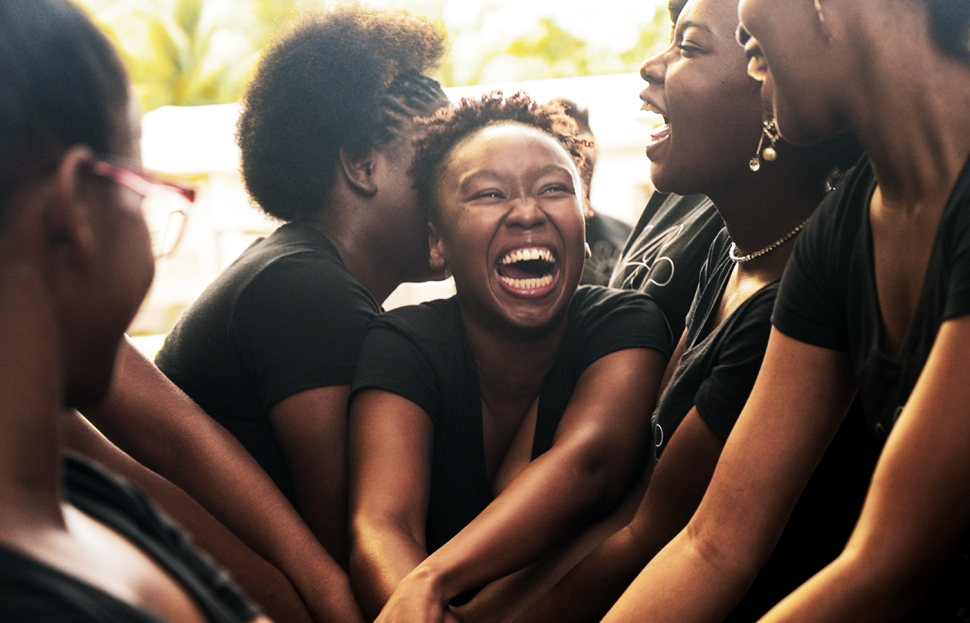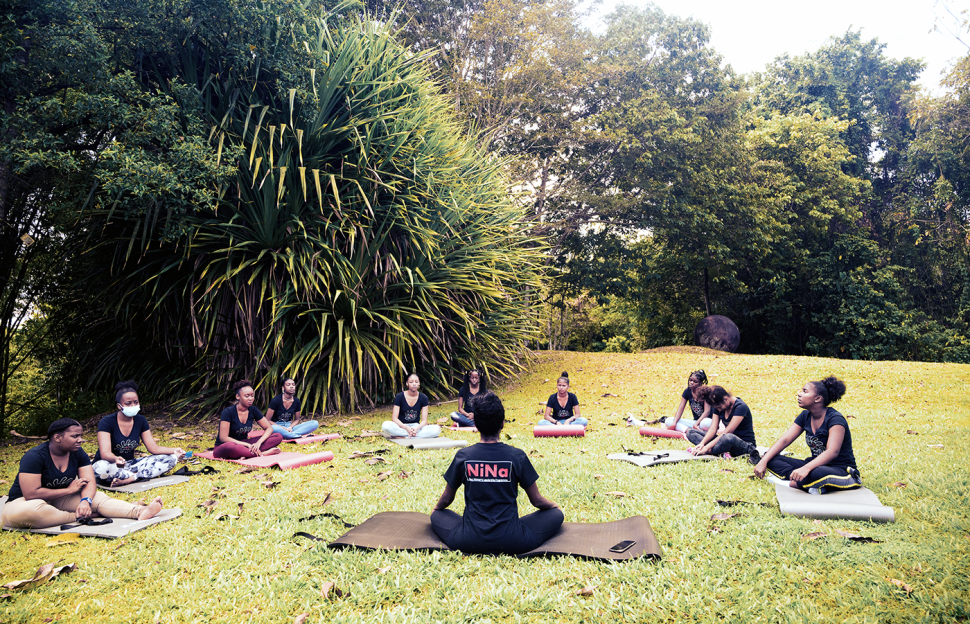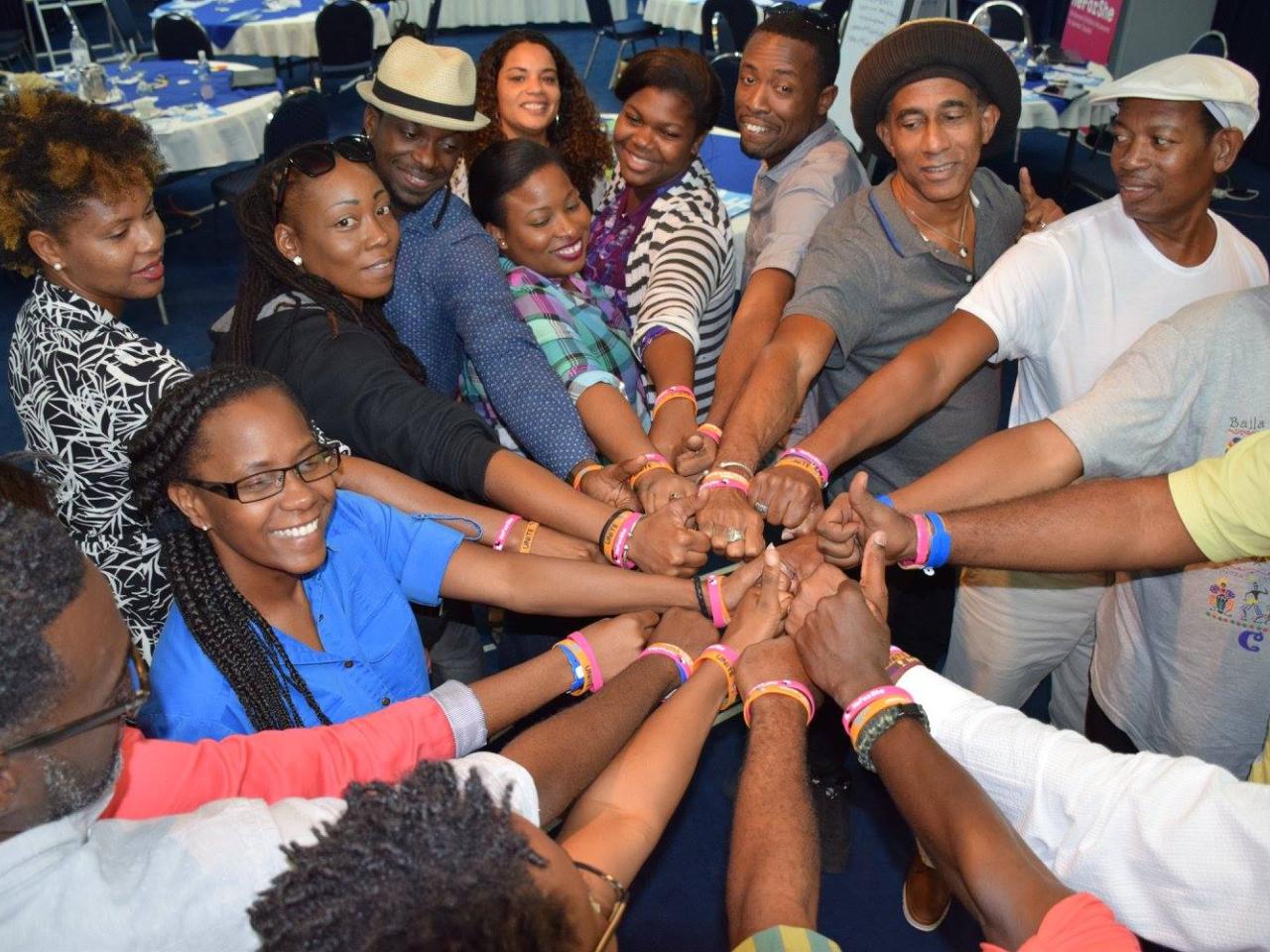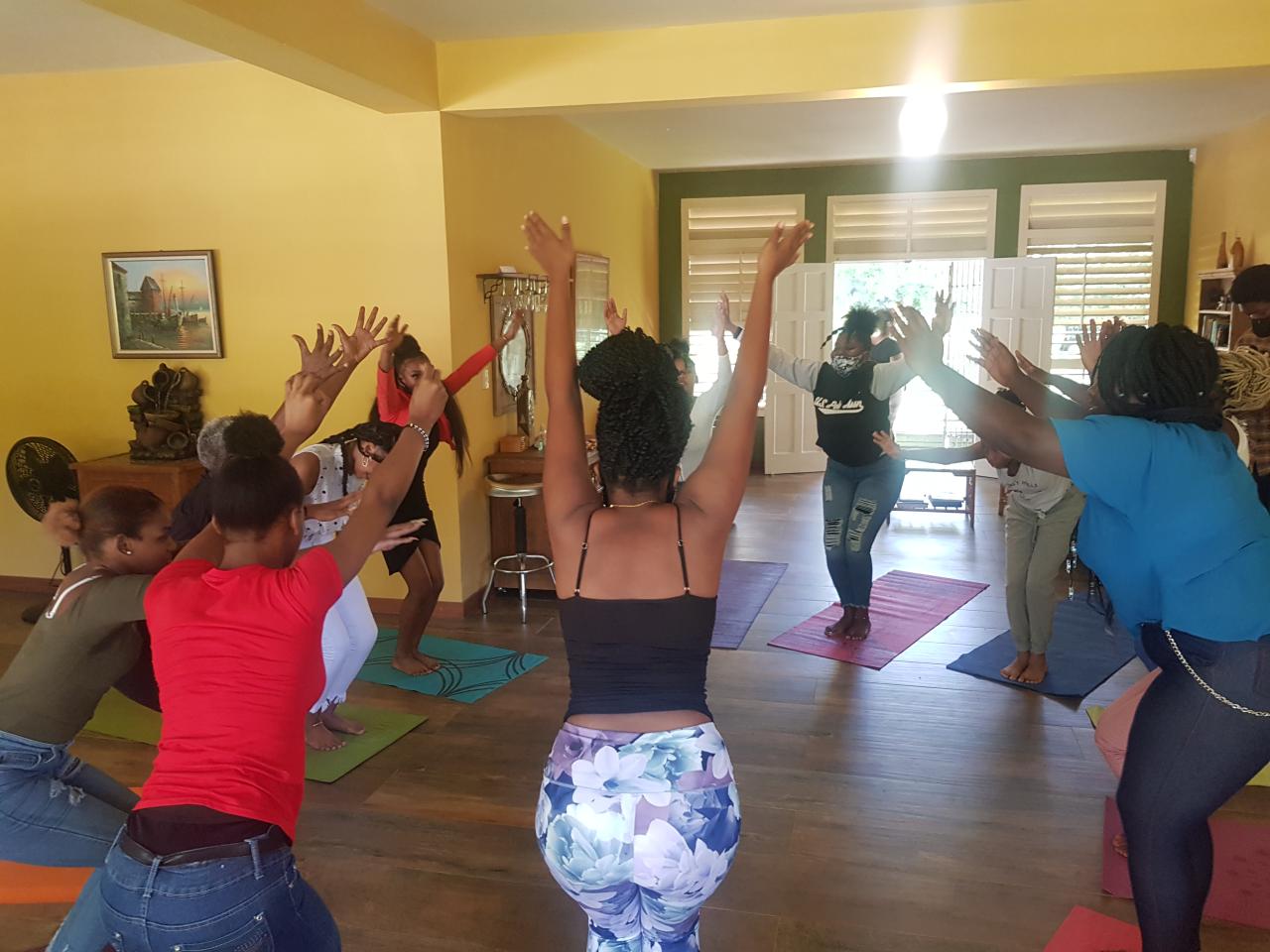In Trinidad and Tobago, unlocking the next generation's potential
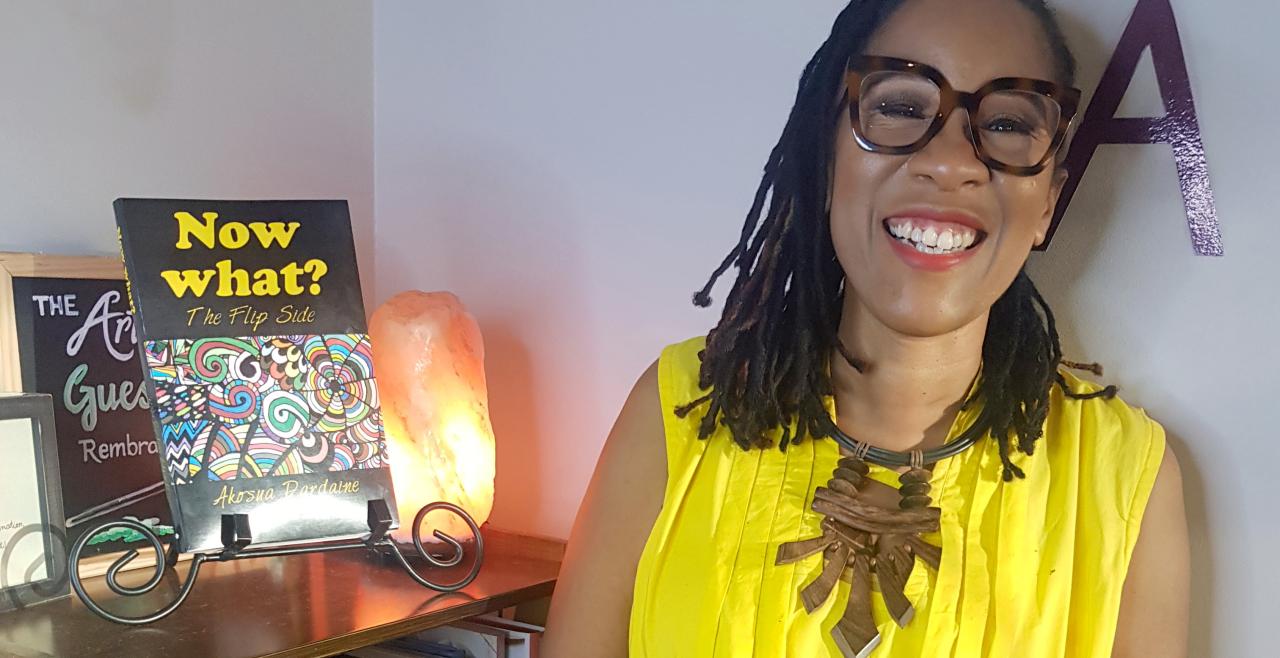
It was a simple enough question — on the surface, anyway — that changed the course of Akosua Dardaine Edwards’ life.
“Who are you?”
Akosua was in Uganda at the time, working for an international company, and the question came from a local elder. But the elderly woman was not asking for Akosua’s name, or her title, or what had brought her 5,000 miles from her hometown in Trinidad and Tobago to a remote village in East Africa.
“Why are you here?” the elder continued. “What are you doing with your story?”
The three questions left Akosua in a daze. She thought about her childhood in the Caribbean and the grandmother who essentially raised her. “We grew up on this street where everyone looked out for everyone,” Akosua recalls. “I always had people who would demonstrate to me in their own way that I had a safe space.”
“So I thought, maybe I should go back home and do that for somebody who doesn’t have what I had growing up — and that’s how NiNa started.”
A Newfound Mission
NiNa, which means “girl” in Spanish, is the name of the organization that Akosua founded nearly 10 years ago to support at-risk girls and young women in Trinidad and Tobago. The organization provides training in leadership, life skills, and entrepreneurship — all in service of achieving gender equality and unlocking the full potential of the next generation.
NiNa is helping women heal from past trauma and learn important life skills. Here, they participate in a workshop around choices and self belief.
One of her biggest challenges is gaining her clients’ trust. “I would always say, ‘When you are ready, you will tell me your story,’” Akosua says. What followed often included horrific tales of abuse, exploitation, and neglect. The girls she works with have survived rape and sex trafficking; some have witnessed murders; others were abandoned by their families entirely.
To help these girls and women heal from past trauma, NiNa offers art, music, and movement therapy to help them reclaim a sense of self and bodily autonomy. “For so many of them, their bodies were snatched from them,” Akosua says. “So we help these girls own their bodies and own the space they take up.” In June 2022, the group hosted its first art exhibition.
The girls and women in Akosua’s programme are also discovering the restorative power of meditation, yoga, and the earth itself. “We’re from an urban setting, so we want to promote a philosophy of connecting with nature,” she says.
“Sometimes they had nowhere to live. Sometimes they had no family. I remember one girl, she said she didn’t even have a pair of shoes.” - Akosua Edwards, NiNa founder
No One Left Behind
Akosua is committed to helping girls and women in Trinidad and Tobago who too often slip through society’s cracks, like those who age out of state care upon turning 18. “The young ladies who were about to leave these homes, they had no support,” Akosua says. “Sometimes they had nowhere to live. Sometimes they had no family. I remember one girl, she said she didn’t even have a pair of shoes.”
It’s why NiNa now also offers a transition programme geared toward helping this demographic in particular — one that is especially vulnerable to exploitation, poverty, and abuse.
Akosua is also trying to teach the girls how to dream big by dreaming big herself. Someday she hopes to open her own business — an eco-resort in Trinidad and Tobago — that would provide employment opportunities and a steady income to support NiNa’s mission.
She knows the obstacles that await her. Before launching her nonprofit, Akosua worked in the finance sector — a notoriously male-dominated industry where she witnessed gender discrimination firsthand. “As I climbed the ladder, I saw fewer and fewer women, particularly at the executive level, making decisions,” she said. “I saw that there were questions raised to women who wanted to obtain loans and financing, such as, ‘Where is your husband? Your son? Is there any man in the business?’” She heard male colleagues criticize women for choosing their families over their careers, or complain that their female counterparts would lose their ambition after having children. Like millions of women worldwide, she also experienced sexual harassment in the workplace. “The hidden agendas of men in power wanting sexual favors from women, I myself experienced that,” she recalls.
“With all this mind, I felt motivated to support and advocate for women and girls.”
Equality For All
When asked what #EqualEverywhere means to her, Akosua says it’s a world where “our uniqueness and differences are celebrated, honored, respected, and used for the improvement of all.” She says she feels hopeful about the progress she is witnessing in her community and country.
“There is a shift in thinking this is ‘just women stirring up trouble,’” Akosua says. “I see more discussions being had on the importance of equality, more advocacy, more awareness, and this bodes well as we continue the journey. I also see more and more women speaking up and being courageous.”
NiNa is one of the first grantees for the WithHer Fund, which provides grants to grassroots women’s rights organizations that are tackling gender-based violence at a local level. It was launched by the UN Foundation in partnership with the Spotlight Initiative, a UN-led effort to eliminate all forms of violence against women and girls by 2030.
Because her grandmother passed away last year, sharing her lessons has become even more important to Akosua. “She was there from the beginning,” Akosua says of her grandmother’s support for NiNa and her influence as a mentor and matriarch — even to the girls and women, too. “Some of the young ladies would say, ‘Oh, here’s my great-grandmother,’” Akosua recalls with a laugh.
“What my grandmother was really teaching me is that it starts with yourself,” she says. “Let’s start with what we have, and we will learn as we go.”
Originally published by UN Foundation

